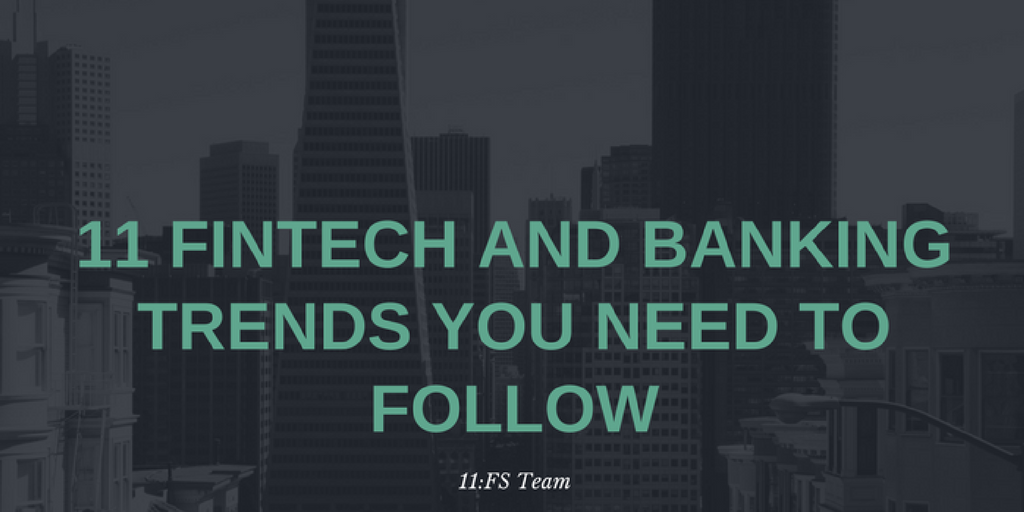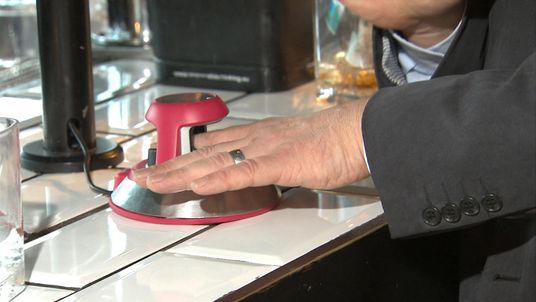Here’s a Monday morning roundup of news and what’s next in the payments industry. Bloomberg files a Fintech primer and looks at the financial industry future. Irish Tech News shares 11 Fintech and banking trends to follow. Forbes looks at three reasons Fintech is thriving. New US financial charters may be key to consumer protection but Silicon Valley sees them as big barriers to innovation. Celent predicts more banks offering mobile person-to-person (P2P) payments.
Airbnb acquired Tilt, a startup whose mobile app enables peer-to-peer payments like rival Venmo. Alipay and Didi are already using facial recognition and the technology is ready for adoption across the banking and payments Industries according to experts. In the UK, pubs are experimenting with paying for your drinks by finger scanners and Nicholas Dryden, CEO of the payments company Sthaler says the technology will soon replace debit and credit cards and other forms of payment. Telecom company MTN Uganda and Standard Chartered Bank launched a mobile wallet service designed to make payments and money transfers easy.
Fintech, the Buzzword Finance Loves Hates: QuickTake Q&A
 You’ve heard it at conferences, in meetings and maybe even bandied about at dinner parties. Ever since a wave of financial technology startups emerged after the 2008 subprime mortgage crack-up, “fintech” has become shorthand for a digital revolution that could sweep away antiquated banking practices. But its definition has become so elastic that it’s hard to know precisely what it is, let alone what it augurs for a global financial industry in dire need of innovation. Here’s a primer.
You’ve heard it at conferences, in meetings and maybe even bandied about at dinner parties. Ever since a wave of financial technology startups emerged after the 2008 subprime mortgage crack-up, “fintech” has become shorthand for a digital revolution that could sweep away antiquated banking practices. But its definition has become so elastic that it’s hard to know precisely what it is, let alone what it augurs for a global financial industry in dire need of innovation. Here’s a primer.
1. What, exactly, is fintech?
It’s a catch-all label applied to companies using the internet, mobile phones, cloud computing and open source software to make banking and investing more efficient. It’s divided into two spheres: consumer-facing companies that offer digital tools to improve the way individuals borrow, manage money and finance startups, and back-office ventures that help financial institutions streamline their operations behind the scenes.
2. Why all the buzz?
Fintech could reshape the financial industry and disrupt some of its biggest players. Already, peer-to-peer lenders use the web to match borrowers with investors, a model that’s shortened loan approvals to hours versus weeks at traditional banks. Online U.S. loan volume is expected to reach $120 billion by the end of the decade, up from $20 billion in 2015, according to Morgan Stanley. In investment management, giants such as BlackRock Inc. and Vanguard Group Inc. are using algorithms called “robo-advisers” to automatically adjust portfolios in accordance with a customer’s risk preferences. Some hedge funds are experimenting, with varying degrees of success, with artificial intelligence to make algorithms self-learning. In the capital markets, startups as well as stalwarts such as Goldman Sachs Group Inc. and the Bank of England are experimenting to see if blockchain, the freely available database that underpins the digital currency bitcoin, can replace existing methods of transmitting assets and currencies. Scores of institutions are also racing to use blockchain to simplify the way securities are traded, settled and recorded. All these endeavors fall under the fintech umbrella. Via Bloomberg
The 11 Fintech and Banking Trends You Need to Follow
 The first few weeks of 2017 bombarded us with articles predicting the future of fintech and financial services. Chris Skinner, our Non-Executive Director at 11:FS, analysed them all and identified the top 11 trends that the leading banking and fintech experts agree we should be following now.
The first few weeks of 2017 bombarded us with articles predicting the future of fintech and financial services. Chris Skinner, our Non-Executive Director at 11:FS, analysed them all and identified the top 11 trends that the leading banking and fintech experts agree we should be following now.
Here’s the trend breakdown, including insight from our 11:FS team:
- Removing friction from the customer journey
- Rise of insurtech
- Rise of regtech
- PSD2 forces banks and fintech to partner
- Reform of the bank boardroom
- China and emerging markets focus
- Chatbots, machine learning, AI
- Fintech gets integrated with social media
- Fintech gets integrated with the Internet of Things
- Platforms, APIs, and open banking are key.
- Blockchain moves out of the labs into the real world Via irishtechnews.ie
3 Reasons FinTech Is Thriving
 Chris Myers of Bode Tree recently wrote in Forbes that “the bloom is finally coming off the rose” in FinTech and that the once hot sector has seen its fair share of failures of late. True, some online lenders, including OnDeck and Lending Club are experiencing heavy losses and some, including CAN Capital, stopped lending altogether.
Chris Myers of Bode Tree recently wrote in Forbes that “the bloom is finally coming off the rose” in FinTech and that the once hot sector has seen its fair share of failures of late. True, some online lenders, including OnDeck and Lending Club are experiencing heavy losses and some, including CAN Capital, stopped lending altogether.
However, what is currently happening in the FinTech industry is not unique in a new industry. In any sector, the market leaders jump out to an advantage. As the industry grow, players quickly enter the marketplace. Some are run well and have a distinct competitive advantage. Others will flounder. That’s how capitalism works. Entrepreneurs take risks. Some succeed, and others fail.
FinTech is thriving because it greatly expanded access to capital to small business owners, including women, minorities and immigrants, who were under-served before technology leveled the playing field. Raising money for a growing business often could be intimidating for someone not born in this country and for whom language and culture could be a barrier. I know because I was one of these people before I co-founded Biz2Credit with my brother, Ramit. Via forbes.com
New financial tech charters may speed up industry acceptance
 The federal Office of the Comptroller of the Currency recently said it intends to offer financial technology firms special charters, which would allow companies like Mint, Square and Stripe to be recognized as special-purpose banks. The proposed rule is in the public comment phase.
The federal Office of the Comptroller of the Currency recently said it intends to offer financial technology firms special charters, which would allow companies like Mint, Square and Stripe to be recognized as special-purpose banks. The proposed rule is in the public comment phase.
Such a charter would enable the companies to offer consumers and businesses debit cards, loans and savings accounts in all 50 states instead of going to each state for permission. At the same time, the companies would be regulated just like any bank, which means they must meet capital and liquidity requirements as well as offer credit to people with low-incomes and/or minorities.
Silicon Valley has not fared well of late operating in highly regulated industries — note the problems of medical device startup Theranos and human resources firm Zenefits. And there’s arguably no other industry more regulated than banks: In addition to the Office of the Comptroller, the Federal Deposit Insurance Corp., the Federal Reserve and the Consumer Financial Protection Bureau oversee such institutions.
For financial startups, the cost and headache of complying with federal regulations may be too much to bear. A study by the Federal Reserve Bank in St. Louis found that community banks (with assets of less than $10 billion each) collectively spent about $3.5 billion in 2014 on such matters. Via sfchronicle.com
Celent Expects More Apps to Incorporate Payments Like Uber Does
 Celent, the financial services research and consulting firm, sees modest changes ahead in retail banking payments with more banks offering mobile person-to-person (P2P) payments.
Celent, the financial services research and consulting firm, sees modest changes ahead in retail banking payments with more banks offering mobile person-to-person (P2P) payments.
When he looks at trends ahead for retail banking in 2017, Celent’s senior analyst Zilvinas Bareisis expects more contextual commerce – making payments easier for customers by taking the transaction to wherever the customer happens to be, whether that is on a social media site where they want to make a purchase, buying clothing from inside the changing room at a retail store or checking into a hotel from an Uber car as it approaches the entrance.
He has hope for mobile wallets, although he concedes he may be a minority voice here. It’s too soon to write mobile wallets off, but they need to combine payments with loyalty points and be consistent across applications and merchants. If the wallets are too cumbersome, consumers will stick with plastic. Two advantages of mobile payments – a user can see the transaction immediately, whether on a card or from a bank account, and it’s faster than EMV cards have been. Via forbes.com
Airbnb Buys Payments Company Tilt to Let Travelers Split Trip Costs
 Late yesterday Airbnb closed on its acquisition of Tilt, a startup whose mobile app enables peer-to-peer payments like rival Venmo.
Late yesterday Airbnb closed on its acquisition of Tilt, a startup whose mobile app enables peer-to-peer payments like rival Venmo.
Airbnb chief executive Brian Chesky has said he wants to make it easier for groups of people to split the costs of Airbnb-assisted rentals. A source says that Jeff Jordan, the Andreessen Horowitz partner on the board of the online home-booking company and the payments startup, helped to engineer the deal.
The terms of the deal were not disclosed, and TechCrunch broke the story. But Fast Company reports that sources say the value was “closer” to the $62.1 million that payments startup had raised from investors like Andreessen Horowitz and Felicis Ventures. That would be a much lower level than the $500 million valuation Tilt was hoping for as recently as summer 2015. Via skift.com
10 Breakthrough Technologies 2017: Paying With Your Face
 Technology from Face is already being used in several popular apps. It is possible to transfer money through Alipay, a mobile payment app used by more than 120 million people in China, using only your face as credentials. Meanwhile, Didi, China’s dominant ride-hailing company, uses the Face software to let passengers confirm that the person behind the wheel is a legitimate driver. (A “liveness” test, designed to prevent anyone from duping the system with a photo, requires people being scanned to move their head or speak while the app scans them.)
Technology from Face is already being used in several popular apps. It is possible to transfer money through Alipay, a mobile payment app used by more than 120 million people in China, using only your face as credentials. Meanwhile, Didi, China’s dominant ride-hailing company, uses the Face software to let passengers confirm that the person behind the wheel is a legitimate driver. (A “liveness” test, designed to prevent anyone from duping the system with a photo, requires people being scanned to move their head or speak while the app scans them.)
The technology figures to take off in China first because of the country’s attitudes toward surveillance and privacy. Unlike, say, the United States, China has a large centralized database of ID card photos. During my time at Face , I saw how local governments are using its software to identify suspected criminals in video from surveillance cameras, which are omnipresent in the country. This is especially impressive—albeit somewhat dystopian—because the footage analyzed is far from perfect, and because mug shots or other images on file may be several years old.
“The face recognition market is huge,” says Shiliang Zhang, an assistant professor at Peking University who specializes in machine learning and image processing. Zhang heads a lab not far from the offices of Face . When I arrived, his students were working away furiously in a dozen or so cubicles. “In China security is very important, and we also have lots of people,” he says. “Lots of companies are working on it.” Via technologyreview.com
Paying for a pint with your finger: The tech that could kill off cards
 In a bar called Proud is an unassuming gadget, sitting on the bar and linked to a small screen. It is a finger-scanner, the sort of thing you might see in a hospital, but here it is not designed to measure your blood, but rather to pay for your drink.
In a bar called Proud is an unassuming gadget, sitting on the bar and linked to a small screen. It is a finger-scanner, the sort of thing you might see in a hospital, but here it is not designed to measure your blood, but rather to pay for your drink.
This is the latest frontier in biometric payments, the ongoing battle to rid us of cash, cards, cheque books and other such accoutrements.
But can this become anything more than a novelty? The man behind trying to sell this technology to the world is Nicholas Dryden, the chief executive of the payments company Sthaler.
He told Sky News the technology would soon be rolled out for testing in supermarkets, cinemas and at music festivals. Via news.sky.com
MTN Uganda, Standard Chartered Bank Partner to Launch Mobile Wallet Platform
 Telecommunications company MTN Uganda has partnered with Standard Chartered Bank to launch a mobile wallet service that will support transactions between the Bank and MTN Mobile Money.
Telecommunications company MTN Uganda has partnered with Standard Chartered Bank to launch a mobile wallet service that will support transactions between the Bank and MTN Mobile Money.
The platform is tailored to allow StanChart Customers using MTN Mobile Money to send or receive Money directly into their Mobile wallets using the Bank’s banking platforms.
Speaking at the launch, the outgoing Standard Chartered Bank CEO, Herman Kasekende commended the collaboration with MTN saying it will enhance the Bank’s ability to extend its world-class financial services countrywide. Via pctechmag.com








LET’S CONNECT